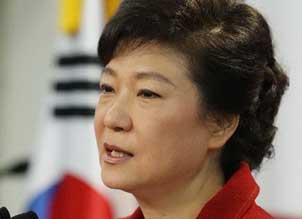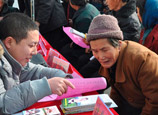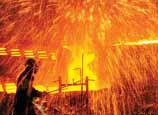
China is faced with challenges in 2012 mainly due to the United States' strategy of rebalance in Asia-Pacific and the strategic expansion in the region.
Firstly, the United States boosted the geostrategic pressure on China by strengthening the military alliance in the region, expanding military bases, deploying littoral warships and advanced strategic reconnaissance equipment, improving the anti-missile system, conducting large-scale military exercise frequently near the territorial sea of China and implementing surveillance to China at close range, all of which pose real and potential threats on China and are direct and indirect challenges to its security.
Secondly, China's territorial sovereignty was challenged. The United States flagrantly intervened in the disputes in the South China Sea and East China Sea by openly or secretly supporting countries having difference with China, conniving in their infringement of China's sovereignty. The behavior of the United States made the issues of the South China Sea and East China Sea complicated and increased the difficulty of China’s safeguarding its legal rights.
Thirdly, the benign relationship between China and neighboring countries were disturbed. The United States has been preaching the so-called "China treat theory" to stir up the misgivings of other Asian countries about China and providing conditional aids to some countries through military exercises to court them. It tried to establish the so-called "alliance of democratic states" in East Asia, with four countries (the United States, Japan, South Korea and Australia) being the axis that surrounded by other pro-U.S. countries, to destroy China's relations with its neighboring countries.
In addition, the United States also implemented new Asia-Pacific economic strategy and actively promoted the establishment of the "Trans-Pacific Strategic Economic Partnership Agreement" to undermine the Asia-Pacific Economic Cooperation and marginalize other regional economic cooperation organizations, thus establishing its dominant role in the Asia-Pacific regional cooperation and exerting adverse impact on China's expansion of regional economic space.
 |














 Beijing-Zhengzhou high-speed railway to start service on Dec. 26
Beijing-Zhengzhou high-speed railway to start service on Dec. 26


![]()
